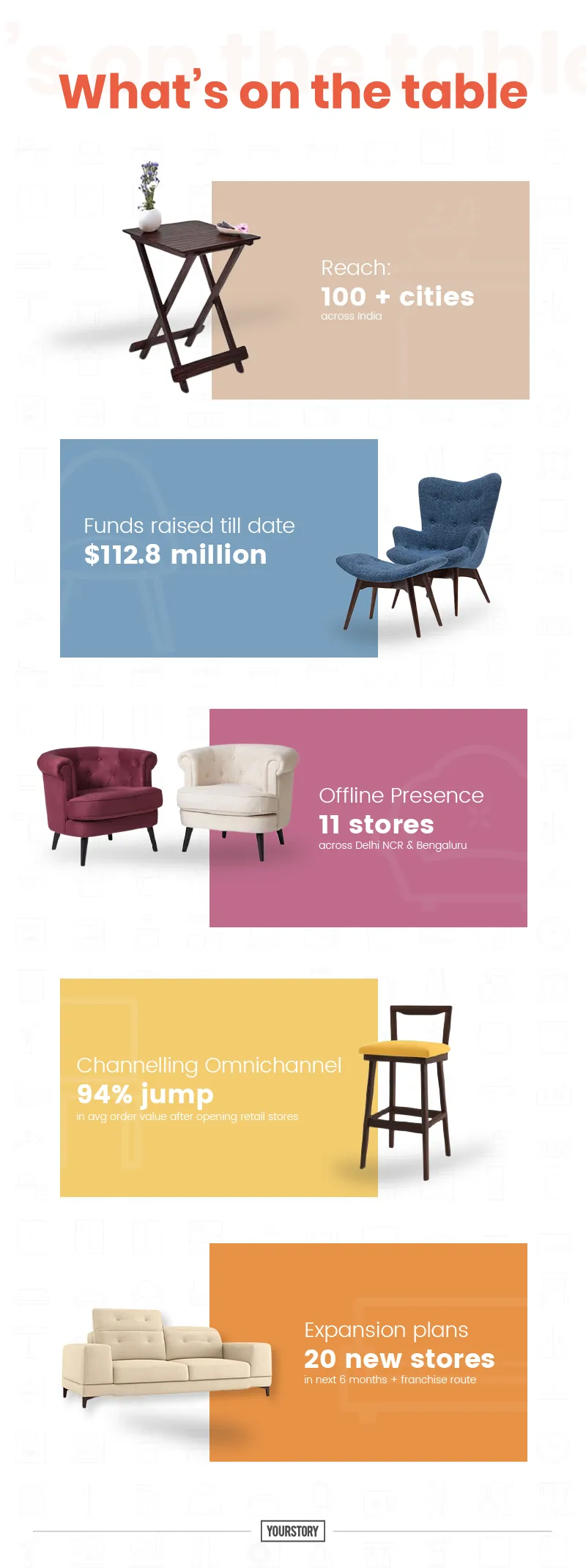Meet the Mavericks: this co-founder and entrepreneur discusses his riskiest bets, handling setbacks, and home decor tips
Make each moment count. YourStory’s video series Mavericks gives you insider access into the lives of some of the country’s most successful entrepreneurs. In our second episode, we pull up a chair with the co-founder of one of India's largest online furniture retailers.
A maverick is a person of incredible vision, someone who challenges norms and forces people to think beyond the ordinary. YourStory is going behind the scenes to uncover the inspirations and secrets of the ultimate maverick in the business world: the entrepreneur.
This week, we are taking a look at a maverick of the ecommerce world: Rajiv Srivatsa, Co-founder of Urban Ladder.
“Everyone has two lives, and the second one starts when you realise you only have one.”
Rajiv Srivatsa, an IIT-Chennai and IIM-Bangalore graduate, took a significant risk with his Co-Founder and CEO Ashish Goel when the two decided to start Urban Ladder. In 2012, no one in India was buying furniture online, but Rajiv reasoned that four years earlier, people would have baulked at buying mobile phones and clothes online too.
Cut to 2019, and business is booming. The Indian furniture and furnishings market is growing steadily, and is set to touch $44 billion in FY22, according to a RedSeer report. Unlike other players in the space, Urban Ladder only focusses on private labels, and provides premium offerings.
Through the highs and lows, the founders realised the value of making mistakes, the importance of landing on both feet, and making use of every second.
The biggest bet
1559412493019.png?fm=png&auto=format)
Rajiv Srivatsa, Maverick and Urban Ladder co-founder
Before Urban Ladder was even a possibility, Rajiv spent over a decade working with a number of multinational corporations, including Infosys, Cognizant, and Yahoo. When he was in Switzerland, working for Cognizant, Rajiv realised that he belonged in the internet space and quit to join Yahoo in Bengaluru.
At the same time, Ashish had just wrapped up his stint at Amar Chitra Katha and was in Bengaluru. The two friends noticed there were no trusted furniture brands that provided products of consistent quality.
The duo decided to take a risk and launch Urban Ladder, reasoning that they each had enough money to go two years without a salary if it came down to that. At the time, Flipkart was the dominant player in the market and Amazon hadn’t even entered India.
“Starting a business was probably the biggest bet that we took –as both Ashish and I didn’t have a background in ecommerce or furniture.”
They launched Urban Ladder with just 35 designs in their catalogue, going on a gut feeling that ecommerce was a good bet. Since 2012, the company has raised about $112.8 million from investors, including Ratan Tata, SAIF Partners, Kalaari Capital, and Sequoia Capital.
In 2017, it posted a 70 percent increase in consolidated revenue to Rs 95 crore for FY17, and narrowed its net loss to Rs 155 crore from Rs 182 crore in the same period.
Urban Ladder views itself as a brand rather than just a platform for others, says Rajiv. It’s about controlling and tweaking their own designs, he adds. Besides their mainstay furniture, the company also provides interior design services and is expanding into physical retail as well.
“For me, very early on, whether I was in IIM-B or whether it was about starting Urban Ladder or being in Yahoo, impacting millions of lives was always a big part of life. Happiness at the end of the day is pretty much what people want.”
Scale down to scale up
1559412634232.png?fm=png&auto=format)
From left to right, Urban Ladder founders Rajiv Srivatsa and Ashish Goel
“If you’ve never failed in life, you’ll be a bad entrepreneur.”
Rajiv says that one of the first decisions the two co-founders ever made was to not go pan-India immediately, and be present only in three cities. In Bengaluru, Urban Ladder was using its own installation and delivery team, which was bringing in positive reviews. For the rest of India, however, it was using third-party providers that were causing some customer complaints.
Eventually, Urban Ladder decided to pull out from these other cities, which wasn’t the easiest call to make, Rajiv notes. But he and Ashish were clear that building a company where customers were complaining was not the kind of legacy they wanted to leave behind. The move cost them about a quarter of their revenue. However, in just a month, sales from Delhi and Mumbai closed the difference. This experience was set into the company culture: do a few things but do them really well.
“It is a very difficult decision for a startup to do that because when you’re one-month-old, you want to do all kinds of business and make sure that you’re growing.”
Even after business started picking up, Urban Ladder allowed itself the space to make mistakes, learn from them, and move on. Rajiv lists the company’s mis-steps: spending a lot on marketing, developing products that weren’t true to the brand, hiring too many people at once, spending a lot on a fancy office, etc.
“Name it and we made that mistake.”
According to him, the company hit its lowest between September 2016 and March 2017. But thanks to the conviction of the founders, Urban Ladder picked itself up successfully. It pivoted to focus on omnichannel, and drastically cut costs.

Urban Ladder growth metrics
At present, Urban Ladder is looking to get to a place where it can launch an IPO, and hit profitability as well. The retailer is still posting losses, but they are narrowing each year. In addition, physical retail is becoming a focus for them in 2019. The company, which opened 11 stores in the last two years, is planning to expand to 20 locations in the next six months.
“As an entrepreneur, you’re going to have a lot of failures. In environments that encourage failures, I think you should try and do a lot of things, and fail and succeed enough times. You need very strong levels of willpower, drive, and thick skin because you will have a lot of failures.”
One Life
1559412944587.png?fm=png&auto=format)
Rajiv with his daughter
“At any point in time, when people go through some difficulty or life event, it’s about what you get out of it and where you land.”
In 2016, when his professional and personal life were taking a hit, Rajiv decided to expand his understanding of what life and happiness is about. He created ‘One Life’, which is his philosophy for maximising happiness in the one life we’re all given.
‘One Life’ has four aspects. The first is about the self - how strong one’s value system, and physical and mental health are. The second is a person’s social and support network. The third part is professional. For Rajiv, this manifests itself in both his work at Urban Ladder and his desire to create social impact in a way that people can realise their potential. The last aspect is more earthly - travel, food, movies, music, and TV.
Rajiv indulges his love for travel as much as he can. Iceland, with its contrasting cold temperatures and hot springs, green forests, and snowy peaks, is his favourite destination. He also recalls the Burning Man festival in the Black Rock Desert in Nevada, where art and music combine in myriad ways, which was a “life-changing” experience.
“Turning 40 is the new 25 and I’m literally living the life of a 25-year-old,” says Rajiv.
However, his go-to place to unwind, disconnect, and play with his daughter, still remains Bengaluru’s Cubbon Park. At home, Rajiv spends his “alone time” on an Urban Ladder recliner, aptly named the ‘Tribbiani’ after Joey Tribbiani, the Friends character. Other company products are similarly and thoughtfully named for their symbolic or cultural associations - study tables are named after authors, for one.
Having spent so many years immersed in furniture, Rajiv has also picked up some home decor tips along the way. A dash of colour in the form of a sofa or an accent piece, he says, can liven up a room filled with neutral colours. After all, creating warm and happy homes is what Urban Ladder is all about.
“At the end of the day, it’s hardly about making money. It is about having a positive impact on a lot of lives,” he says.
Concept & Direction: Shivani Muthanna
Camera person: Rukmangada Raja
Video Editor: Anjali V
Content Writer: Anya George


1559412493019.png?mode=crop&crop=faces&ar=2%3A1&format=auto&w=1920&q=75)






